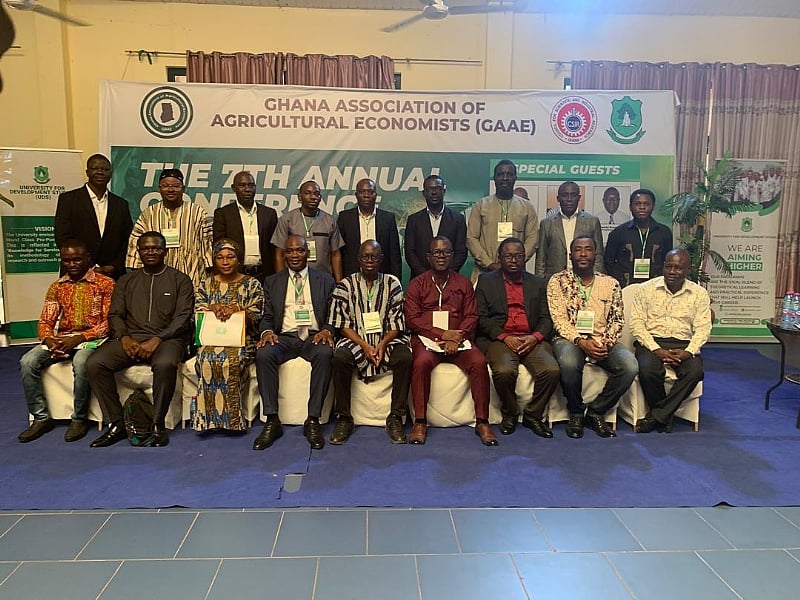The seventh Annual Conference of the Ghana Association of Agricultural Economists (GAAE) commenced at the University for Development Studies (UDS) in Sagnarigu Municipality, Northern Region, with a focus on creating actionable policies to tackle challenges in Ghana’s agricultural sector. This four-day event, themed “Regenerative and Precision Agriculture for Inclusive Value Chain Development in Africa,” convened agricultural economists, researchers, policymakers, and industry professionals nationwide to discuss current issues affecting agriculture. The conference aimed to disseminate innovative research and practices that can improve land management and resource use, ultimately transforming the agricultural landscape in Ghana.
Opening the conference, the Vice Chancellor of UDS, Prof. Seidu Al-Hassan, represented by Pro Vice-Chancellor Professor Elliot Alhassan, welcomed the opportunity to host such an important event. He highlighted the conference’s theme as particularly relevant, given the increasing difficulties faced by the agricultural sector in Ghana, exacerbated by detrimental activities such as illegal mining (galamsey) that compromise local water resources and overall environmental sustainability. Prof. Alhassan underscored the necessity of addressing these issues, cautioning that neglecting these concerns threatens not only agriculture but also the broader ecological balance essential for future sustainability.
Hajia Hawa Musah, the Northern Regional Director of Agriculture, represented by Agriculture Engineer Madam Rahmat Musah, emphasized the urgent need for research focused on climate change impacts on agriculture, which remains the backbone of Ghana’s economy. She expressed that agriculture is increasingly at risk due to unpredictable weather patterns, and practical, research-driven solutions are critical for safeguarding the livelihoods of millions of farmers. The urgency for action, she remarked, is paramount; the time for discussion has passed, and it is now imperative to generate effective recommendations that can actively combat climate challenges facing agricultural systems.
The GAAE President, Professor Daniel Bruce Sarpong, urged conference participants to fully engage in dialogue and share insights that could lead to meaningful change within the agricultural sector. He implored attendees to focus on arriving at actionable outcomes that could shape policies and practical strategies within agricultural economics. By holding such a conference, the GAAE reiterates its mission to promote collaboration in the agricultural field and seeks to facilitate productive exchanges that can lead to substantial progress in tackling the severe issues facing Ghana’s agriculture.
To achieve its goals, throughout the conference, participants participated in both plenary and breakout sessions, presenting and debating their research findings. These sessions provided a platform for discussing pivotal topics such as agricultural finance, climate resilience, and evolving food systems. The dialogues aimed at revealing actionable insights and developing effective strategies that can fortify the agricultural sector’s resilience and growth trajectory in Ghana, contributing to improved food security and economic viability.
The conference, set to conclude on October 5, 2024, seeks not only to foster dialogue and knowledge exchange among agricultural stakeholders but also to leave a significant mark on the future directions of agricultural policy and practice in Ghana. Through its focus on regenerative practices and precision agriculture, the GAAE aims to redefine value chain development in Africa, reinforcing agricultural development as a critical driver for the nation’s economy moving forward. The outcomes from this conference are expected to play a crucial role in guiding future research initiatives and influencing agricultural policies designed to uplift the sector amidst ongoing challenges.














